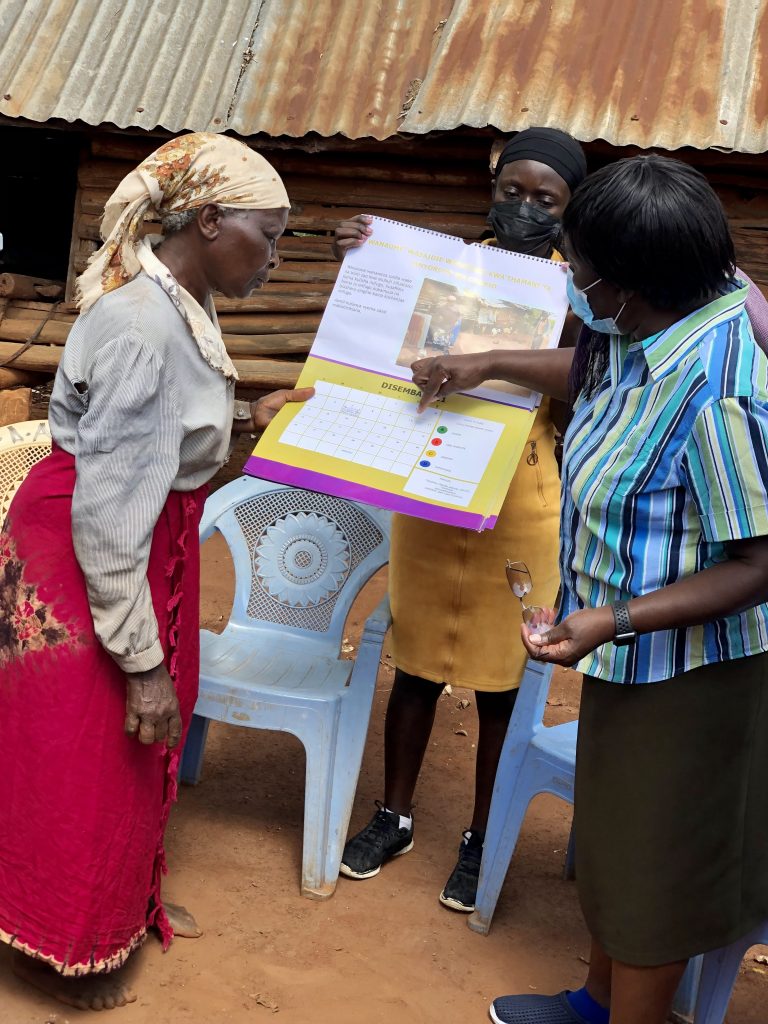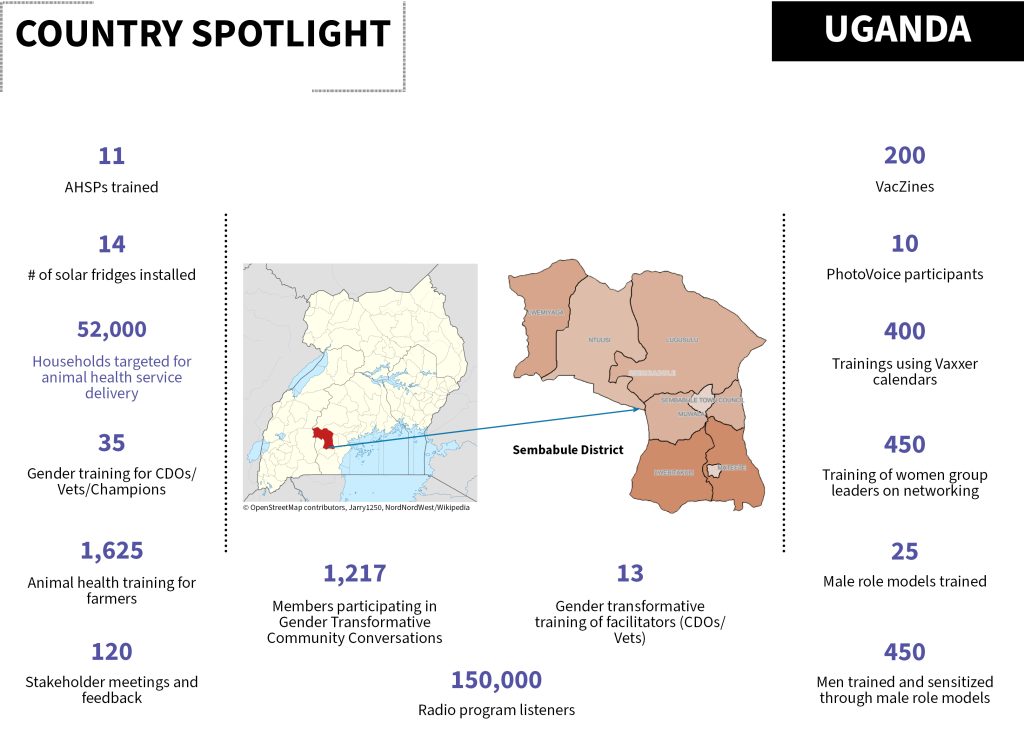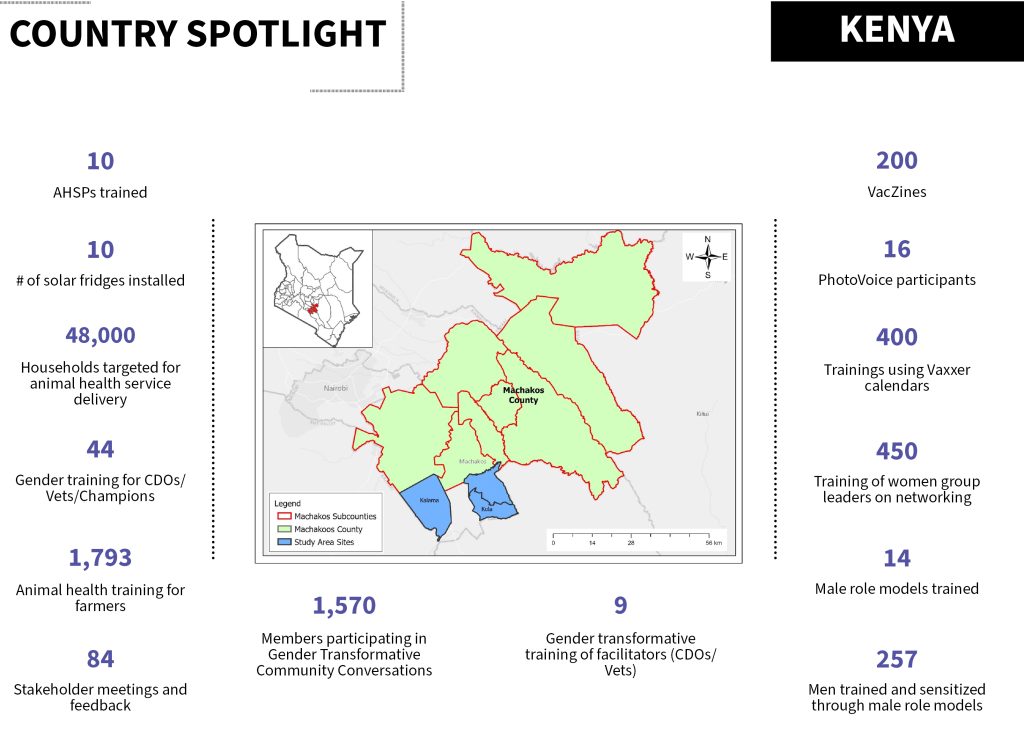Since 2019, SheVax+ has organized gender training for men and women to change beliefs and behaviors that affect women’s decision-making, with regards to vaccine use, access to training and livestock ownership. Over 30 facilitators trained over 3,500 people in local communities. From these, 63 male role models were selected to work with local leaders to change cultural stereotypes and further advocate for women.
Through SheVax+, women are empowered to take on LVVC leadership positions. In all three countries, 30 AHSPs have completed training, and been provided with an initial kit of drugs and vaccines, and solar fridges for vaccine cold storage. AHSPs provide gender and animal health training to communities every two weeks, and provide vaccination and animal health-related services. The aim is to create a team of entrepreneurial women who will move further up the value chain into vaccine distribution and manufacturing.
SheVax+ also supports women in creating and managing groups, so they can better access information and services, and be in a stronger negotiating position with suppliers. Over 750 women have received training on group formation and leadership and poultry and goat production, as well as business skills and marketing.

To improve women’s access to information on animal husbandry, vaccination and gender issues, SheVax+ created Vaxxer calendars (a calendar with information on vaccination, animal health and gender issues), which have been used to train 1,500 women. In Rwanda, 400 copies of a comic have also been distributed in two middle schools. Featuring positive women role models, the comic aims to tackle negative stereotypes about women’s ability to make decisions, and teach children how to raise healthy chickens and goats.
To address regulatory barriers to vaccine availability, and ensure that regional policymakers understand the importance of involving women in the LVVC, SheVax+ has held stakeholder meetings with government regulators, veterinarians, private vaccine manufacturers, and distributors in all three countries. Rwanda has approved the import of livestock vaccines from Kenya and Uganda, and talks are underway in Uganda to allow the private sector to participate in PPR vaccination programs. In Kenya, a partnership of private and public organizations is bringing stakeholders together to identify and seek opportunities to implement gender responsive policies and strategies.


